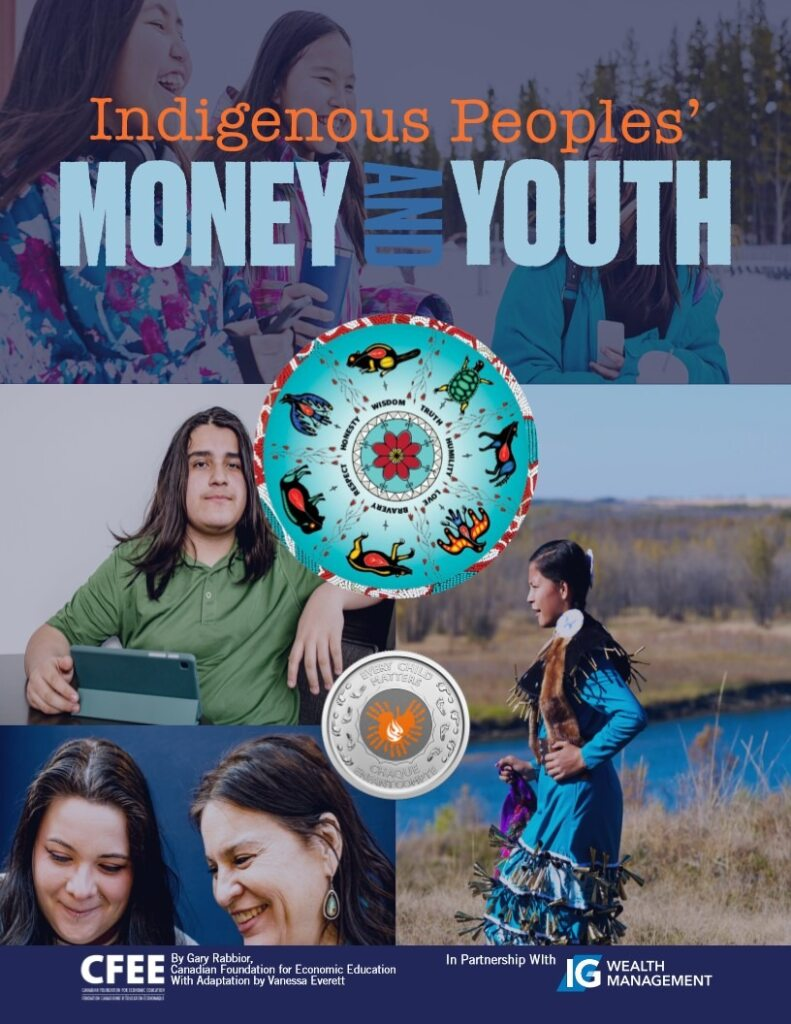About The Canadian Foundation for Economic Education (CFEE)
The Canadian Foundation for Economic Education (CFEE) is a non-profit, non-partisan organization, founded in 1974, that works to improve economic, financial, and enterprising capability.
CFEE works collaboratively with our funding partners, departments of education, school boards, schools, educators, teacher associations, colleges and universities, immigrant serving agencies, and seniors’ organizations to develop and provide free, non-commercial programs and resources for teachers and students – developed and reviewed by educators. CFEE also has a range of programs to assist newcomers to Canada as they look to settle and integrate into their new country.
CFEE also works internationally with organizations such as the OECD in Paris and the Association of Asia Pacific Countries (APEC). Overall, CFEE’s work focuses on helping people of all ages, including seniors and older adults, to be better prepared to undertake their economic roles, responsibilities, and decisions with confidence and competence. Extensive research in recent years has clearly indicated a strong correlation between financial health and mental health and CFEE aims to help Canadians stay in control of their financial affairs so as to avoid experiencing the financial stress and anxiety that can impact mental health.
I. CFEE’s Mission
Help Canadians undertake economic decisions and actions with confidence and competence.
II. CFEE’s Vision
Every Canadian has the capability and opportunity to build a successful economic future by:
- Acquiring Relevant Knowledge: to improve financial competence and enable one to make informed and wise financial decisions;
- Building Self-Confidence and Self-Efficacy: that is, through experience and opportunity to believe in themselves, Canadians can set and achieve goals in life and be willing to take action to manage and plan financial affairs to improve life possibilities and outcomes;
- Maintaining Financial Control: and set this as a priority to avoid financial stress and anxiety that can negatively impact mental health;
- Considering Trade-offs and Distinguishing Between Needs and Wants: to set personal priorities and recognize that financial decisions continually require assessment of what is needed versus what is wanted—and that such assessments can vary from time to time and that every financial decision will entail a “trade-off”—giving up something to get something else;
- Planning and Preparing for Life Cycle Stages: to be ready for larger expenses that can become relevant at various stages of life—e.g. children, education, housing, and retirement.
III. CFEE’s Guiding Principles
CFEE’s work is guided by several principles, including the following:
- Work done by CFEE is non-partisan with no commercial benefit;
- All programs and services are made available in English and French and, as possible, rather than straight translation, programs should be developed specifically for francophone audiences across Canada with a sensitivity to their needs and language;
- Financial health and mental health are linked, and this reality should be considered in the work undertaken by CFEE;
- CFEE work is “needs focused” on the priority needs and cultural sensitivity of our target audiences;
- Experiential learning is the most effective form of learning with the greatest amount of knowledge retention;
- Programs and resources often require modification for audiences with special needs, disabilities, or living in challenging economic conditions;
- While some of CFEE’s work may be national in scope, activities may need to be modified for variations in provincial circumstances and;
- CFFE’s impact is amplified through national, regional, provincial/territorial, and local networks that provide ongoing, locally directed context and support.
IV. Our Learning “Pillars”
- Priority #1: Improving Financial Capability—Helping Canadians to manage their financial affairs to stay in control, make wise money decisions, and enable money matters to contribute positively to life outcomes and circumstances;
- Priority #2: Improving Economic Capability—Helping Canadians understand the economic realities and issues that can impact one’s life and be able to factor such understanding into life’s choices, decisions, and plans;
- Priority #3: Enterprising Capability—Helping Canadians to develop enterprising skills that can be beneficial to virtually any life activity at home or in the workplace;
- Priority #4: Career Development Capability—Helping Canadians make effective education, training, and career choices to secure and sustain employment or generate an opportunity for self-employment and attain a reasonable quality of life for themselves and their dependents.
V. Our Target Audiences
CFEE will focus our activities on the following target audiences:
- Youth: recognizing that young people are developing the knowledge and skills to build a successful financial future, focus efforts on helping youth at all ages from 5 to post-secondary years to acquire important knowledge and skills;
- Indigenous Peoples of Canada: recognizing the unique past, culture, traditions, and interests of Canada’s Indigenous people, focus particular attention on how CFEE’s programs and resources can align with learning needs;
- Newcomers to Canada: recognizing the challenges and opportunities faced by newcomers coming to Canada, focus attention on the ways, means, resources, and programs that can assist new immigrants with their settlement and integration challenges related to financial matters such as banking, housing, employment, etc.;
- Seniors: Recognizing the unique challenges and circumstances that seniors face as they move into retirement years and plan for wealth transition and end-of-life, focus efforts on helping seniors prepare for and manage their financial affairs in their later years.
Land Acknowledgement
CFEE acknowledges that our office in Toronto is located on the traditional territory of many nations, including the Mississaugas of the Credit, the Anishinaabeg, the Chippewa, the Haudenosaunee, and the Wendat peoples. We also recognize that our work across Canada spans the ancestral lands of Turtle Island, a place of life, earth, and Indigenous identity, and we honour the diverse cultures and knowledge of Indigenous peoples as the traditional guardians of this land.


















